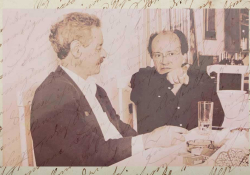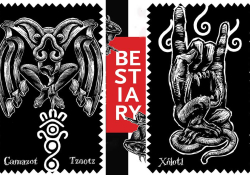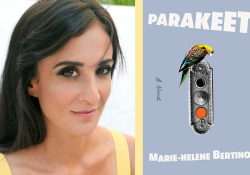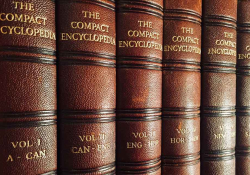Telling the Story of Hong Kong
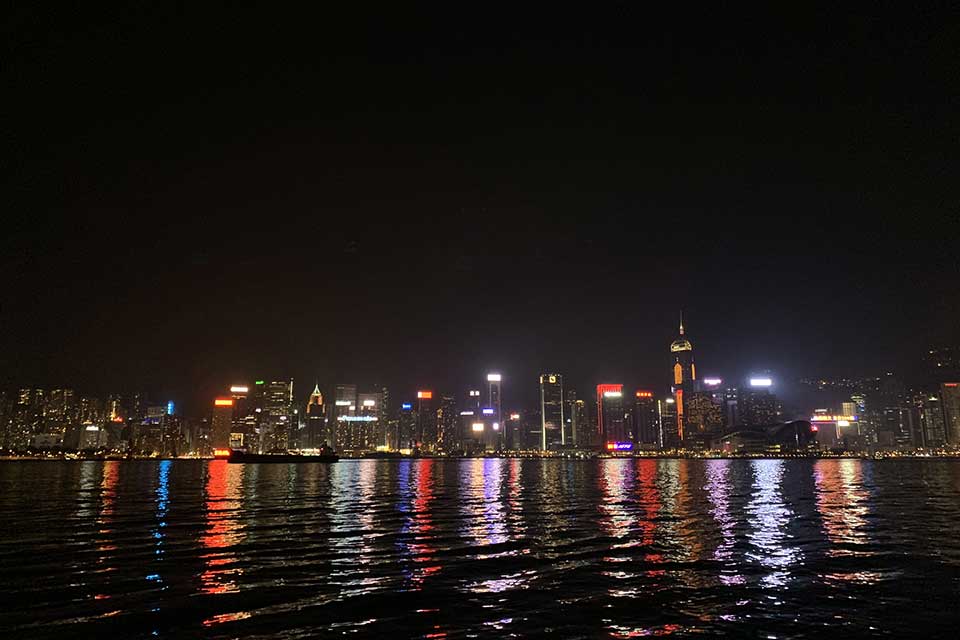
Following decades of British colonial rule to the rapidly tightening grip of mainland China and all the stories told about that chunk of land along the way, Hong Kong has grown accustomed to outsiders imposing manufactured identities and narratives upon it. Any attempt to summarize—let alone explain—what has been happening on its city streets for five months and counting would be a uniquely modern form of cultural imperialism. That story would be best told by those who are there. I can only tell you about what I’ve learned, from where I am and where I’ve been. During the span of the 2019 anti-extradition law amendment protests, which have since evolved beyond opposing the bill that would have allowed for the extradition of certain arrested residents to mainland China, I have been to Hong Kong and back in my adopted hometown of Los Angeles, thinking about the fragile concept of location-based identity. What I’ve learned is this: if the true nature of a location can be grappled with, confronted, and preserved anywhere, it is in literature; and the literature of Hong Kong portrays a place as complex, vibrant, challenging, and politically unstable as current news dispatches would suggest.
If the true nature of a location can be grappled with, confronted, and preserved anywhere, it is in literature; and the literature of Hong Kong portrays a place as complex, vibrant, challenging, and politically unstable as current news dispatches would suggest.
In Hong Kong, all the students are on the streets, AirDrop-ing warnings that riot police stand poised to fire tear gas down blockaded MTR exits. The protest plays out on Twitter in fragmented bursts. A tank blows blue smoke at a horde of people in hard hats. A slew of green laser pointers shake and rattle mockingly atop a distant gathering of police uniforms. They shut down one of the world’s busiest airports.
From my couch in Los Angeles, the city where tent cities blossom beneath half-constructed skyscrapers and cranes wave the American flag behind graffiti-covered fences, the streets of Wan Chai look different than they did when I visited them in early March. Back then the entrance to Central Station wasn’t on fire. But maybe—if you’ll indulge me surmising this from my aforementioned couch, in my little granny flat just down the road from the AirBnb-able “Charles Bukowski’s childhood home,” in a city whose literary history is overshadowed both by NYC publishing behemoths and the Hollywood factories that plague this industry town—just maybe, the idea that something like this would happen sooner rather than later was brewing in the minds of the millions in Hong Kong who are now expressing that their way of life is under siege.
The concept that my many fellow ignorant Americans and I too often fail to understand, however, is that these ideas haven’t just been brewing in Hong Kong recently. They are ingrained in the now special administrative region’s culture. Anthony Daparin, another student in the Vermont College of Fine Arts MFA program, has been covering the protests from the ground with thoughtful detail and analysis. In his 2017 book City of Protest: A Recent History of Dissent in Hong Kong, Dapiran analyzes the deep roots of protesting in Hong Kong and their connection to the 2014 Occupy Wall Street–inspired Umbrella Movement. “In a city whose population identifies itself—at least vis-à-vis its sovereign, the People’s Republic of China—by reference to the rights and freedoms it enjoys which the rest of China’s population does not, protest is an embodiment of that identity, embracing as it does the freedoms of speech, expression and assembly,” Dapiran writes. The book chronicles a series of Hong Kong protests dating back from the 1960s, all the way through to a speculative analysis of the anxiously anticipated, not-so-distant date of 2047, when the right to protest may be set to officially expire. To be a Hongkonger, the book surmises, is to protest.
Expressing the right to protest is, of course, just one fragment of what one could regard as a complete “Hong Kong” identity. There are more than 7.3 million people living in Hong Kong. To tell the definitive story of the vast, diverse place, including all its most mundane, apolitical aspects, would be impossible.
Expressing the right to protest is, of course, just one fragment of what one could regard as a complete “Hong Kong” identity.
And yet politics is inextricable from the lives of ordinary people everywhere, especially in Hong Kong. In his poem “Mussels from Brussels,” author, poet, and scholar P. K. Leung tells a tongue-in-cheek tale about the tension between universality and individuality, slyly commenting on how the weight of history impacts both. The poem begins with an argument for the universality of art, in which a Czech novelist can write a French novel, and “in Brussels we still eat Canadian mussels.” By the conclusion, the poet flips the validity of the preceding lines. “Are we all the same? Read carefully, the Czech novelist hasn’t written a French novel, Chinese mussels strayed from home, thousands of miles away, still taste of the ponds and lakes that bred them. All mussels have their own history / There isn’t a mussel thoroughly metaphysical.” Physical location impacts the lives of people everywhere. Personal identities have a symbiotic relationship with the identities of the locations in which a mass of individuals live.
P. K. Leung spent his career as a writer and scholar dedicated to confronting cultural identity and ruminating on how the individual plays a role in a grander scheme. In an essay in The Story of Hong Kong, translated by Martha P. Cheung from his 1995 Chinese-language book Hong Kong Culture, Leung posits that every story told about his city technically adds to the larger, overarching identity of the place. “From all sides people are vying with each other to tell the story of Hong Kong. And they declare in unison: Hong Kong has no story of its own,” he writes. Most people who tell these stories, Leung states, have an agenda. Hong Kong is either an international economic hub akin to New York and London, or it’s a nationalistic point of wary pride. Ultimately, he urges the margins of Hong Kong society to make their voices heard, writing, “perhaps it is when these many voices sing in chorus that the texture and complexity of the story of Hong Kong can be felt.”
This concept of a distinct Hong Kong identity challenged and excited Leung until his final days. In the South China Morning Post, journalist Didi Kirsten Tatlow reflected on a legendary series of intellectual dinners Leung had organized, writing: “At our dinners, one question kept popping up among the various topics: ‘How can we tell Hongkongers we have a rich, vibrant and colourful culture we should be very proud of?’” Six years after his death, the legacy of P. K. Leung and his work has carried on through the vibrant literary community he helped herald. Writers like Dung Kai-cheung, Xu Xi (who co-runs the VCFA International program), the poet Nicolas Wong, and a diverse cast of Hong Kong characters continue to infuse their work with this question of location-based identity. [Editorial note: Xu Xi’s recommended reading list appears in the Spring 2019 cover feature of WLT’s city issue devoted to Hong Kong.]
Dung Kai-cheung’s Atlas: The Archaeology of an Imaginary City contains ruminations about a fictionalized version of Hong Kong called Victoria. Throughout the book, Dung confronts the city from multiple angles and in various abstract forms. In a chapter entitled “The Centaur of the East,” Dung questions whether Victoria has become a centaur, combining elements of British and Chinese influence into a new heterogenous entity, a construction that, ironically, “cannot be found in the Chinese mythology.” The chapter concludes with a quote from Borges: “The Centaur is an impossible creature, for the horse reaches maturity before the human, and at the age of three the horse would be full-grown and the human only a babbling child. Moreover, the horse would die fifty years before the man.” This sentence likely references the fifty years between the 1997 “handover” from the UK to China and 2047, when Hong Kong’s Basic Law may expire. In describing Hong Kong as a centaur, Dung also calls it an “impossible creature.” The reality of Hong Kong’s identity seems to be that it can be a million things at once, or just one specific thing, or nothing at all, depending on who’s asking.
The reality of Hong Kong’s identity seems to be that it can be a million things at once, or just one specific thing, or nothing at all, depending on who’s asking.
At Hong Kong Baptist University, P. K. Leung’s alma mater, a new undergraduate Creative and Professional Writing Program has flourished under the tutelage of American-born poet James Shea, Hong Kong writer Dorothy Tse, and others. It’s a cross-genre program with equal emphasis on creative writing and practical, career-oriented business writing. Students write in both Chinese and English, and sometimes both at the same time. This balance between English and Chinese hints at yet another piece of the mystifying puzzle that is Hong Kong identity and the shape of that identity to come.
Cantonese is one of the most obvious markers of how Hongkongers differentiate themselves from the mainland. Although the written version of the language is indistinguishable from characters used in Mandarin, writers have toyed with language in order to imply that their work be read in Cantonese.
College-age students have been leading the recent demonstrations and will shape both the future of Hong Kong’s literature and its overarching sense of shared identity. During VCFA’s Montpelier, Vermont, residency, Shea told me he thought his Baptist University students might skip the start of the new school year to protest, as they did for about a month or so during the Umbrella Movement.
Cantonese can’t be written, necessarily, although Cantonese speakers can read written Chinese in Cantonese, and writers can write in an a way that implies that’s how the text should be read. Dung Kai-cheung, for instance, authored anther book called Cantonese Love Stories. Xu Xi, who calls Hong Kong “a city that remains [her] perpetual concern,” came up with a title for a collection of stories in Cantonese, “Heunggong yahn dik duen liksi.” The literal translation is “Hong Kong People’s Short History,” which, she claims, “does not do it justice.” The English title was ultimately translated as History’s Fiction: Stories from the City of Hong Kong, which P. K. Leung and other local writers approved for its layered meanings in multiple languages. Preserving Cantonese, and playing with the intersection between Chinese and English, is yet another concrete way in which Hong Kong writers can, and are, establishing their distinct literary identity.
In late June, I finished reading an experimental short story written by an undergraduate creative writing student from Baptist University. As global citizens connected via WhatsApp and the ever-trustworthy email, we had agreed to exchange our English-language writing across the Pacific Ocean along with notes and feedback from perspectives different than our own. In composing my response to the student’s story, I opened with an almost-thoughtless declaration: “I hope things are going well for you in Hong Kong.” The phrase, to me, was banal. News reports of the tumult there had been impossible to ignore, but the words I chose could have easily been directed toward friends in San Francisco, or Illinois, or anywhere.
In response, I received the following:
Well, things here are not going very well. Since the government doesn’t step back, protests continue. Last Sunday, some gangsters attacked protesters and citizens, but the police seemed uncared about it, making people wonder if they are somehow connected. Another thing is that the protest has evolved from targeting at the law to the whole government system. So, I really don’t know where the whole movement will lead, or how it will end. Just hoping it’ll be a good end.
As I reread the story we were discussing, I found myself questioning whether the narrative was a censor-proof commentary on the author’s city. Without giving too much away, the story features a character who is stuck in a small room of mirrors and is unable to move in any direction. When I asked if the story was about Hong Kong, the student replied, “The story’s not about Hong Kong. The protests hadn’t started when I came up with the idea.” Again, my own skewed perspective had projected a narrative that wasn’t there. At the same time, the story couldn’t have existed without Hong Kong, where the author grew up, lives, and writes. And I wouldn’t have thought about it in the way I did, jumping to unnecessary conclusions, if I didn’t read it from my couch in Los Angeles.
But that’s the nature of location-based identity. It hinders us as much as it can propel us forward. In Hong Kong right now, it feels more pressing and important than it does elsewhere. But maybe that’s just one element of a narrative that’s easy to impose upon it at this moment. As P. K. Leung writes, “Everyone is telling it—the story of Hong Kong. Everyone is telling a different story.” And that’s okay.
Los Angeles

